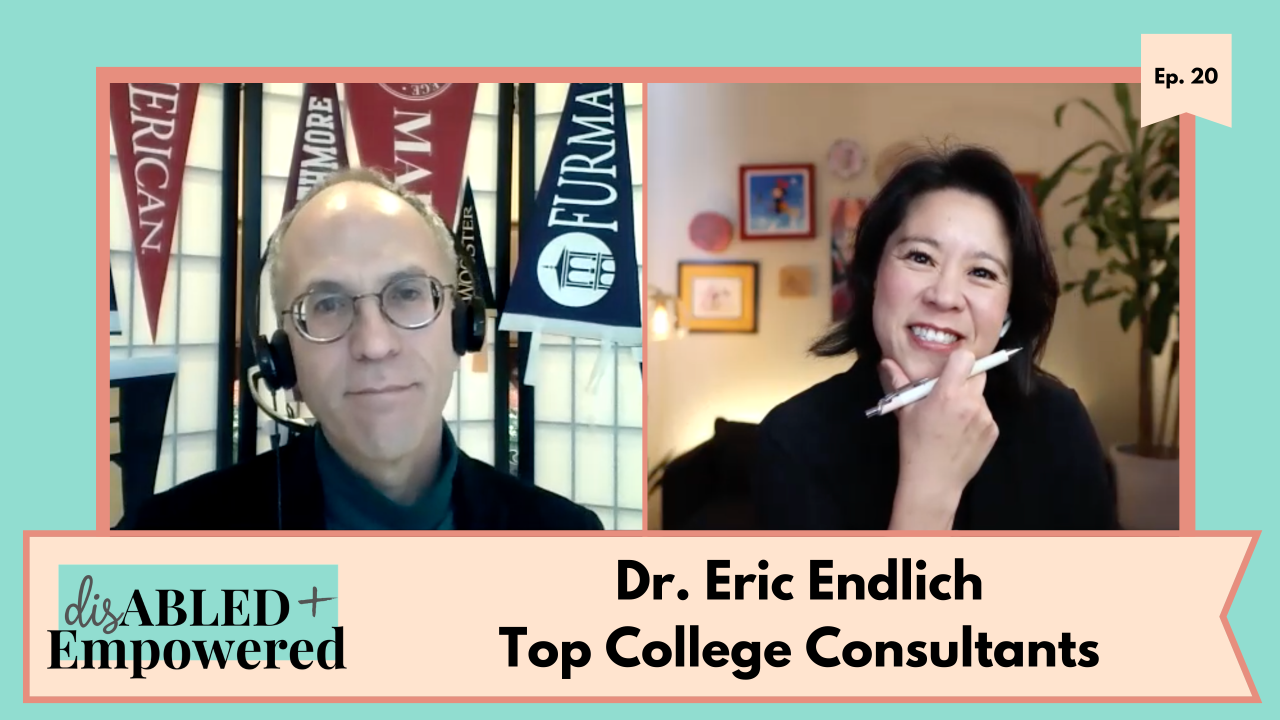What is a College Consultant? When Might One be Helpful? | An Interview with Dr. Eric Endlich from Top College Consultants

It's not just about college admissions
In my interview with Dr. Eric Endlich from Top College Consultants, I learn that a College Consultant is not just about someone that helps you get into college. Rather, they offer a formal process to fully understand a student. Combine this understanding with the expertise of a College Consultant, and a plan is formed to adroitly usher a teen into their next phase of young adulthood, whether this means immediately going to college after high school or not.
Here are just a few things that Eric takes into account:
- Who is the student? What are their goals/hopes/dreams? What is their learning profile? What accommodations and supports (if any) were provided in high school? What are the student's grades and testing scores? What do we know about the student's neurological and emotional profile?
- What kind of school does the student want to attend? What kind of college experience do they want? Would the student feel more comfortable at a small or big school? Does the school have the sports or clubs that the student wants to pursue?
- What is the school's ability to support a student with a disability, neurodiversity, learning disability, or emotional challenge? Is the DSPS active and effective? What supports are available? What is the disability culture of the school?
- What are the financial considerations of the student and their family? Which school will be best for the student to maximize their ability to obtain scholarships and grants?
- Should the student take a gap year?
Lower the temperature
When is a College Consultant helpful? Simply? When a student or family is overwhelmed by college selection. Just like anything in life, when we're overwhelmed by something important to us, we get help. If we're able to think about our needs objectively, we get help from experts that can effectively help us solve the problem at hand. For some students and families, making a college decision feels better when ushered by a trusted professional. As Eric puts it, he "lowers the temperature" of what can be, a tense process.
Acquiring the guidance of a College Consultant is especially helpful when a student has neurodiversities, learning problems, or emotional challenges. A College Consultant, well an exceptional one, knows specific college climates, knows how supportive a certain college's DSPS will be, and how to obtain necessary accommodations and supports that contribute to a students' success.
College is not high school
I know, duh. But, this fact is true and unintentionally overlooked. The accommodations and supports drop significantly in college. This is especially felt when a student is graduating from high school with a full suite of accommodations, services, and the support of a cadre of paraprofessionals that have been actively involved for a while. In addition to receiving fewer accommodations and supports in college, students must also consider if they are ready to live away from home and manage all of life's demands. For example, what are the students' self-help skills? Are their executive functions good? Do they have a good self-care routine? Do they know how to manage stress? Are they good problem solvers? Can they manage unstructured time? Can they self-monitor and manage their own behavior with safety and health in mind?
Mind the gap
Eric and I talk about gap years. What is a gap year? A gap year is a year (or more) that a student can take to gain skills to be more college-ready. This is especially helpful when students need more time with emotional maturation, social skills, executive functioning, building daily living skills, or acquiring more life experience (volunteering, working, traveling abroad, developing interests, etc.). The research shows that when students are ready for college, they do better in college. Luckily, there are many programs that focus on college readiness and Eric can help students and families find the right ones.
Knowing is half the battle
High five to all of you that immediately thought of G.I. Joe. In all seriousness, we don't know what we don't know. This is why hiring someone like Eric, who has the knowledge and expertise to guide one of the biggest decisions a young adult will make, can serve as a massive pressure reliever.
Check out my full interview with Eric, where we also talk about college readiness (hint: it's more than having good grades). A BIG THANKS 🙏🏼 to Eric for sharing his time and talent!!!
